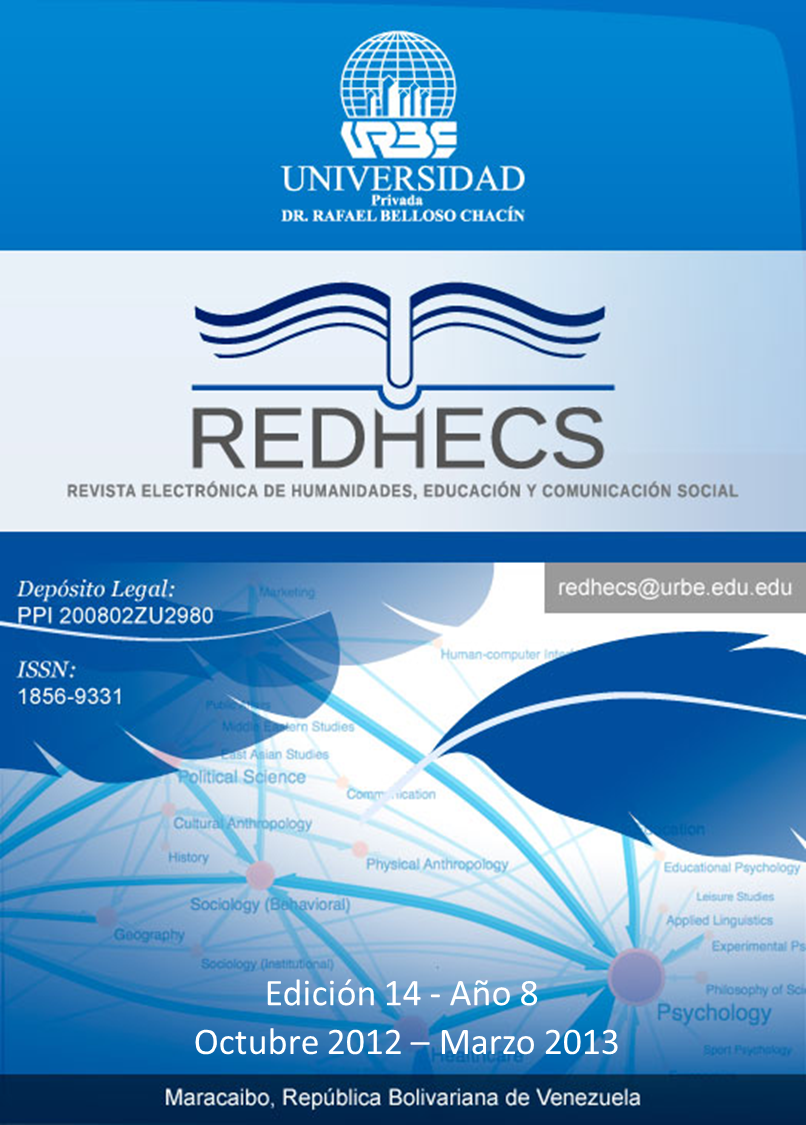REFLEXIONES SOBRE LAS TEORÍAS DE APRENDIZAJE
Resumen
El presente trabajo tuvo como propósito elaborar un conjunto de reflexiones sobre las teorías de aprendizaje que sirven de orientación a la dinámica docente, la cual está matizada por el paradigma seleccionado. A objeto de alcanzar ese propósito, el autor ejecutó una profunda revisión bibliográfica, a través de diferentes épocas, seleccionando aquellos autores e investigadores que a su juicio han contribuido significativamente, en el enriquecimiento de las estrategias de enseñanza implementadas por el docente y su influencia en las estrategias de aprendizaje de los estudiantes. Como resultado se plasman las consideraciones del autor sobre las teorías del aprendizaje.
Descargas
Citas
Allport, G. (1977). La personalidad: su configuración y desarrollo. Barcelona. Herder.
Aquino, T. (2002). Comentarios a las sentencias de Pedro Lombardo, Volumen 1/1, El misterio de la Trinidad. Nombres y atributos de Dios. Pamplona. EUNSA.
Ausubel, D. (2000). The acquisition and retention of knowledge: a cognitive view. Boston. Kluwer.
Ausubel, D.; Henesian, H. y Novak, J. (2002). Psicología educativa. Un punto de vista cognoscitivo. México. Trillas.
Bartlett, F. (1951). Review of thinking: an introduction to its experimental psychology by George Humphrey. Quarterly Journal of Experimental Psychology, 4 (1), 87–90.
Bloom, B. (1985). Development talent in young people. New York. Ballantine Books.
Brown, N. y Wilson, M. (2011). A model of cognition: the missing cornerstone in assessment. Educational Psychology Review, 23, 221-234.
Bruner, J. (1960). The process of education. Cambridge. Harvard University Press.
Bruner, J. (1996). The culture of education. Cambridge. Harvard University Press.
Candel, M. (2011). Aristóteles. Obra completa. Biblioteca de Grandes Pensadores. Madrid. Editorial Gredos.
Carkhuff, R. (1971). The development of human resources. New York. HRD Press.
Dollar, J. y Miller, N. (1974). La teoría del estímulo-respuesta y la personalidad. Barcelona. Paidós.
Gage, N. (1963). Paradigms for research on teaching. In Handbook of research on teaching. Chicago. Rand McNally & Co.
Glaser, R. (1984). Education and thinking: the role of knowledge. American Psychologist, 13, 145-182.
Good, T. y Brophy, J. (1991). Looking in classrooms. New York. Harper Collins.
Gowin, D. y Novak, J. (1988). Aprendiendo a aprender. Barcelona. Ediciones Martínez Roca.
Guthrie, E. (2008). The psychology of learning. New York. Harper & Brothers Theories of Learning in Educational Psychology.
Hamachek, D. (1987). Encounters with the self. New York. Holt, Rinehart & Wiston.
Husserl, E. (1986). Ideas relativas a una fenomenología pura y a una filosofía fenomenológica. México. F.C.E.
Karmiloff-Smith, A. (1994). Cap. 1: El desarrollo tomado en serio. Madrid. Editorial Alianza.
Kirschenbaum, H. y Glaser, B. (1978). Developing professional support groups. La Jolla. University Associates.
Kohlberg, L. (1984). Moral stages: a current formulation and a response to critics. Basilea. Karger Publisher.
Kohler, W. (1947). Gestalt psychology. New York. Liveright Publishing Corporation.
Koffka, K. (1935). Principios de la psicología Gestalt. Barcelona. Paidós.
Leibniz, G. (2007). Obras filosóficas y científicas, Granada. Comares.
Lewin, K. (1951/1988). La teoría del campo en la ciencia social. Barcelona. Paidós.
Maclure, S. y Davis, P. (1994). Aprender a pensar, pensar en aprender. Barcelona. Gedisa.
Maslow, A. (1943). Una teoría sobre la motivación humana. Toronto. Editado por Christopher, York University.
May, R. (1988). Libertad y destino de la psicoterapia. Bilbao. DDB.
Mayer, R. y Bransford, J. (2003). Learning and instruction. New Jersey. Merrill Prentice Hall.
McClelland, J. y Rumelhart, D. (1981). An interactive activation model of context effects in letter part-patern: part I. An account of basic findings. Psychological Review, 88, 375-407.
Miller, G. (1951). Lenguage and communication. New York. McGraw Hill.
Moustakas, C. (1994). Phenomenological research methods. California. Sage Publications.
Murphy, J. (2011). El miedo y las preocupaciones. Barcelona. Ediciones Obelisco.
Nickerson, R. (1987). Enseñar a pensar: aspectos de la actitud intelectual. México. Paidós.
Palincsar, A. y Brown, A. (1984). Reciprocal teaching of comprehension-fostering and comprehension-monitoring activity. Cognition and Instruction, vol. 2, pp.117-75.
Patterson, G. (1982). Coercive family process. Eugene. Castalia Publishing Company.
Piaget, J. (1969). Pfychologie et pedagogie. New York. Basic Books.
Pozo, J. (1992). El aprendizaje y la enseñanza de hechos y conceptos, en los contenidos de la reforma de enseñanza de conceptos, procedimientos y actitudes. Madrid. Santillana.
Resnick, M. y Yasmin, K. (2008). Constructionism in practice: designing, thinking, and learning in a Digital World. New Jersey. Lawewnce Eribaum Associates, Inc. Publishers.
Roberts, T. (1989). Multistate education: metacognitive implications of the mind-body psych technologies. Journal of Transpersonal Psychology, 21(1), 83-102.
Rogers, C.; Freiberg. H. y Jerome, F. (1996). Libertad y creatividad en la educación. Barcelona. Paidós.
Rogers, C. (2004). Grupos de encuentro. Buenos Aires. Amorrotu editores.
Rousseau, J. (2002). La cité de Jean-Jacques Rousseau (en francés). Écrits de théorie du droit, de droit constitutionnel et d'idées politiques. París. Éditions Panthéon-Assas.
Sartre, J. (1960). Crítica de la razón dialéctica. París. Verso.
Shaftels, R. (2001). Modelos de desarrollo cognitivo. Madrid. Alianza.
Shuell, T. (1990). Phases of meaningful learning. Review of Educational Research. 60,4,531-548.
Skinner, B. (1982). Contingencias del reforzamiento, un análisis teórico. México. Trillas.
Skinner, B. (1950). Are theories of learning necessary? Psychological Review, 57: 193-216.
Spiro, R.; Feltovich, P.; Jacobson, M. y Coulson, R. (1991). Cognitive flexibility, constructivism, and hypertext: random access instruction for advanced knowledge acquisition in ill-structure domains. Documento en línea. Disponible en: http://www.mrcoombs.com/educ533/docs/CognitiveFlexibility.pdf. Consulta: 05/10/2012.
Thorndike, E. (1932). The fundamentals of learning. New York. Columbia University.
Tinzmann, M. (1990). What is the collaborative classroom? Oak Brook. NCREL.
Vygotsky, L. (1978). Mind in society. Cambridge. Harvard University Press.
Watson, J. (1930). Behaviorism. New York. Norton.
Wertheimer, M. (1912). Experimentelle studien uber das sehen Von Bewegung. Zeitschrift für Psychologie, 61, 161-265.


